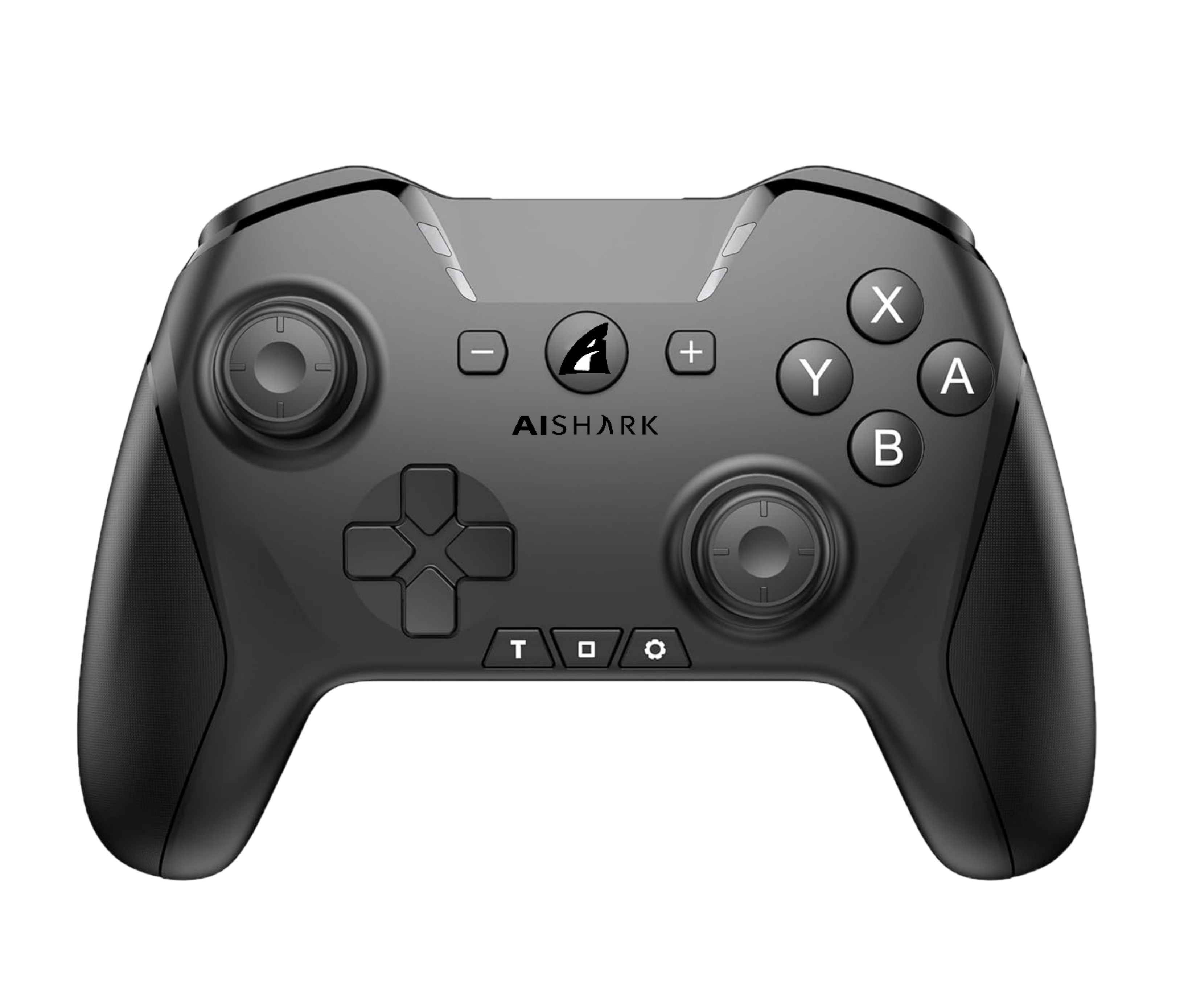Would you like a game controller that “can suggest button remaps and sensitivity adjustments” based on how you use it? What about a gaming mouse that “adjusts DPI settings in real-time, ensuring that your cursor movements are always accurate and fluid?” Or a keyboard that will “suggest key remaps and macros tailored to your gaming habits?” Those are all the promises of AI Shark, a new peripheral maker from the former US CEO of the company that launched the GameShark in 1996.
“We have updated the product and brought it into the age of artificial intelligence, machine learning, and super computers,” the AI Shark website claims. What it doesn’t say is how.
AI Shark, which debuted at this year’s CES, is part of a wave of hardware companies getting on the AI bandwagon and claiming to offer big advantages to gamers. MSI, for example, just announced a monitor that’ll supposedly help you keep track of opponents in League of Legends. “Harnessing the power of AI, supercomputers and our exceptional code-writing team, we are aiming to eclipse the original GameShark’s triumphs tenfold and redefine the gaming landscape on a global scale,” AI Shark CEO Todd Hays said in a press release.
There is a bit of a legacy connection here: the GameShark was a hot accessory back in the ’90s, allowing console players to cheat in games and access test levels and cut content by altering game code in memory. Hays was the head of the American arm of Interact, the company behind the GameShark, during its heyday. More recently, he and AI Shark’s Chief Technology Officer built a Bitcoin gift card company called BitCard. That company hasn’t posted on social media since May 2023; as best as I can tell, the cards are no longer available for sale.
AI Shark isn’t going it totally alone here—it’s partnered up with audio company Altec Lansing, which put out a press release announcing itself as “the first licensee of AI Shark’s cutting-edge gaming software.” That’s for the headset, which I didn’t mention—it promises “real-time auditory guidance” and “verbal cues about in-game events” to help you in games.
Judging by the image of that headset on AI Shark’s website, which has the AI Shark Logo poorly photoshopped on top of the existing $59.99 Altec Lansing Whisper headphones, I have a feeling that these products are currently in the theoretical stage. The controller is just this $35 Bluetooth model being sold on Amazon, again with a logo Photoshopped onto it.
The AI Shark headset will “analyze in-game audio patterns to provide strategic advice” (Image credit: AI Shark)
Our XGPT system will learn what the player is going to do, and what they should do, and know before they do it
AI Shark founder Todd Hays
AI Shark’s website doesn’t state that any of its products are mock-ups, but in an email to PC Gamer, CEO Todd Hays wrote that they are “product concepts with tech demo proof of concepts already developed.” Hays also stated that the peripherals will have “TPU processing integrated,” referring to Tensor Processing Units that are optimized for machine learning.
The website doesn’t couch the peripherals’ promised AI capabilities in terms of possible features, which makes those claims hard to believe without a demonstration. Actually, I’d say how they’re being presented currently is misleading. The AI Game Controller pictured on the website is not a “masterpiece of precision engineering” as AI Shark claims; it’s certainly not “built with sensors that detect your grip, pressure, and button timing, making real-time adjustments to button sensitivity and response.”
How could it be any of those things! It’s an off-brand controller you can buy on Amazon, where one reviewer called it “Absolute GARBAGE!” and another called it “bad a**.” (To be clear, they said it was bad ass because it let them play Minecraft on their iPad, not because of any AI capabilities).
If AI Shark is actually building unique hardware with any of the AI capabilities it’s claiming, the final products will presumably look different than the ones currently on its website. Hays backed up the claimed features over email, writing that AI Shark’s “XGPT training system” will “learn what the player is going to do, and what they should do, and know before they do it,” but said the details of how it does those things “is currently under heavy NDA.”
Perhaps the company was just eager to get its name out there and will really deliver on the products it’s listing here. If so, the way it’s thrown out lofty claims with little evidence to back them up is a reminder to be mighty skeptical of anything you see having to do with AI this year. Everyone wants a piece of the hype.











